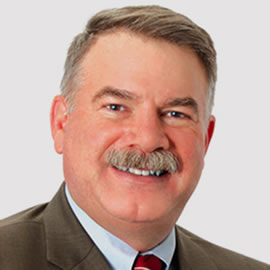“Meditation is allowing what is.”—Victor Davich
Indulge me for a moment. Move to a space where you are alone and can be comfortable. Close the door to the room you are in and turn off any nearby electronic devices that might command your attention. Do not worry; this will only occupy a few minutes of your time. Pick an object in the room and focus on it while taking two or three deep breaths in through your nose and out through your mouth. Then, gently close your eyes and focus your mind on the sensation of breathing. If your mind strays to some other thought beyond your breathing, just gently return to focus on the breath. Feel the breath moving in and out along with the motion in your chest. Count each breath up to 10 and then do it again for a total of 20. This is simple. Go ahead and give it a try. I will wait …
There, you have just meditated. If this was your first experience at trying to exercise and quiet your mind, you are welcome. Many of you who attempted the exercise I just requested are likely a bit disappointed because you do not necessarily feel any different. This is not surprising. Just like physical exercise for the body, training the mind does not result in meaningful results with the first effort. I doubt anyone would seriously expect physical stamina and health improvements by doing one push-up or running 50 feet, as wonderful as that would be if it were true. Learning to calm the mind is a skill that takes practice. The beauty of this type of exercise is it requires no equipment and can be accomplished practically anywhere. Just like physical exercise for my body, the reality of daily life often disrupts or prevents me from meditating as often as I would like, even though the activity only consumes 10 minutes of my time. I have to make meditating a priority in my day to realize the benefits. For me, the advantages of the practice are no longer abstract. Personally, I have noticed improvements in my ability to cope with daily stress, but perhaps more importantly, my family has seen a positive change in me.
My journey to regular meditation was not without difficulties. Like many, as a younger person, I perceived meditation as the purview of Shaolin monks or hermits living on mountaintops with too much time on their hands. As a young physician, I fancied my mind as an instrument to be sharpened with facts that I could wield as a weapon against human injury and illness. As a healthy exercise, the value of meditation was lost on me, since my exposure to the discipline was derived from movie and television characters who practiced the mysterious art (“Kill Bill” by Quentin Tarantino, for example). Like so many areas of medicine I have explored, my interest in meditation developed from a need to become familiar with the practice because research suggested meditation could be used in the management of pain. One of the most incredible benefits of being a physician is the truly limitless variety of the profession. No matter what I master in the practice of medicine, I am always humbled by how each improvement in my knowledge forces me to recognize how little of the field of medicine I have actually mastered. I mention this because I was often troubled as a younger man that I would always be medicine’s servant, never its master. My acceptance of this truth was considerably eased through my exercises in meditating. I began to understand how to manage my mind to accept what is as opposed to what I think or desire things to be. To be truthful, my meditation skills are novice at best. I have only begun to scrape the surface of my proverbial meditation iceberg and the potential it represents. I am by no means an expert. Then again, I now enjoy a far better state of mind from where I once was. Furthermore, meditation, like medicine, is a journey with no destination. There is always more to learn and experience.
Those readers who feel I have finally lost my grip and am presently writing this from my own mountaintop wearing orange monk robes, fear not. From my perspective, meditation is not about mysticism or religion, as the television would suggest. It is about personal health. The routine practice of meditation has proven to be especially useful in my daily life. In this column, I have noted that I have an irrational and unfounded fear of going to the dentist. For me, a dental appointment is one of the most unpleasant and anxiety-provoking activities I do. The illogical fear I have for the dentist’s chair is my reality. No amount of rationalization resolves the anxiety and discomfort that results. Through meditation, I have learned to focus my mind on the act of breathing as the dental hygienist picks at my molars with that pointy instrument from my personal hell. The exercise does not eliminate the event’s reality. It does provide me a tool to calmly accept the situation and move through and beyond it with hardly a noticeable increase in my perspiration. In another personal example, I required a chest MRI to complete my retirement workup when I left the Army. The MRI machine was not quite large enough to accept the width of my shoulders. I needed to endure the contrast MRI (I had already wretched from the contrast injection) perfectly still with my shoulders pressed against the side of the machine. The heat generated by the electromagnets gradually slow-roasted both my shoulders as the imaging study loudly droned on, seemingly with no end. This situation was less than pleasant, to say the least. Still, if I panicked and stopped, I would have to endure another appointment and the contrast all over again. I closed my eyes and focused on my breathing, in and out, as I had practiced many times before in less-challenging circumstances. The uncomfortable aspects of my situation were undoubtedly still there, but by focusing on my breathing, I deemphasized these realities in my mind. Before I knew it, the MRI was completed. Long lines, droning lecturers and bumpy aircraft landings are just a few of the many circumstances where this practice is useful. Meditation provides something constructive to do in situations that are anything but constructive.
I chose this topic because March 2021 represents one full year of dealing with COVID-19 and the myriad unpleasant stresses the pandemic has brought to our lives and practices. The challenges we face as a nation can be overwhelming. I find that exercising my mind through meditation does not change these realities, but it does allow me to meet these stresses in a calmer and clearer state of mind. There are numerous approaches and guides to practicing meditation. I prefer an app on my phone (Headspace is what I use, although there are many quality options). The 10 to 15 minutes I invest in this effort for myself has not changed the problematic realities of my day, but it has improved my acceptance of what is and made me more resilient. In short, meditation has had a positive impact on the quality of my life. I recommend the practice to my patients, friends and family. I also recommend this exercise to US Medicine readers. The stressors of our world are not soon to be resolved. Meditation provides a method to accept these realities without fear or anger, enhances your resilience to withstand these challenges and, perhaps most importantly, provides the clarity of mind and purpose that can lead to positive change. It is a gift you give yourself, a skill I believe we could benefit from and use right now.



Beautiful article. I too am a physician who has been practicing simple meditation regularly over the past year and I too can see the difference. I fully agree with you that it is all about enhancing personal health physical and mental. I’m learning more about it and I am glad that it is being taught as a tool to help patients cope with many daily stressors including chronic pain, a condition that as a physiatrist in VHA I have to treat on a daily basis. Thank you.
ALTHOUGH LESS STRUCTURED, PRAYER CAN ALSO BE A POWERFUL FORM OF MEDITATION & IMPROVES RESILIENCE.
KEEP UP THE GREAT EDITORIALS. YOURS ARE ALWAYS SO PERCEPTIVE & RELEVANT TO OUR LIVES AS PHYSICIANS & TEACHERS. THEY ARE ONE PIECE OF MEDICAL LITERATURE I TRY TO NEVER MISS (UNLIKE JAMA,BMJ,ETC EDITORIALS THAT I ONLY READ IF I THINK I MIGHT GET SOMETHING WORTHWHILE).